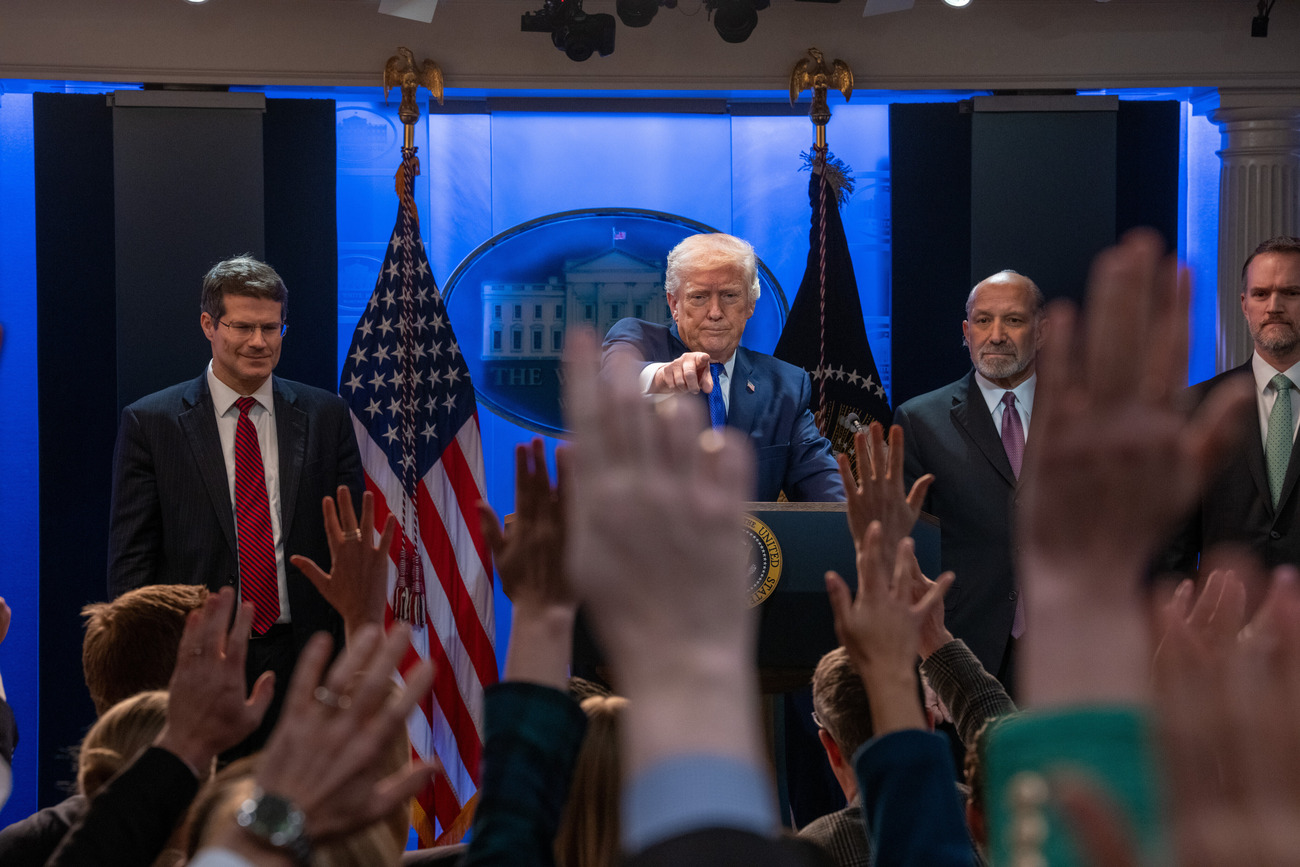Partnering with Colombia
Partnering with Colombia
While a U.S.-Peru bilateral agreement moved forward in Congress, the Council of the Americas brought together Ambassador John Veroneau of the Office of the U.S. Trade Representative and Colombia's Minister of Trade Luis Guillermo Plata. Speakers emphasized the need for congressional approval of a trade deal with Colombia, a key U.S. ally in the hemisphere.
In the wake of the House passage of the U.S.-Peru Trade Promotion Agreement (TPA), the Council of the Americas recently brought together hemispheric leaders on Capitol Hill to discuss the future of interregional trade relations with a focus on the United States and Colombia.
Speakers for “Partnering with Colombia” included:
- Ambassador John Veroneau, Deputy United Trade Representative, Office of the United States Trade Representative
- H.E. Luis Guillermo Plata, Minister of Trade, Republic of Colombia
Council of the Americas regularly holds forums on Capitol Hill to advocate for better hemispheric policy by engaging Congressional leaders and their staff.
Colombia plays an integral role in hemispheric security and stability, and has enjoyed a decades-long partnership with the United States. However, U.S.-Colombian relations reached a crossroads in 2007, with the U.S. Congress holding the key to unlock the future direction of the alliance. Plan Colombia, a bipartisan U.S.-backed security initiative that transformed Colombia into a stable democracy, faces uncertainty as Congress debates levels of funding as well as a shift from security and military support to economic and social aid. Meanwhile, the strongest catalyst for U.S. economic support to Colombia—the pending trade agreement between the two countries—has stalled over concerns of Colombia’s perceived impunity for violations against labor and human rights leaders.
Colombia has experienced an economic surge and rising security under the leadership of President Álvaro Uribe, as Minister Plata explained to the audience. He described the decrease in violent crime and economic upswing as the “Uribe effect.”The Colombian economy has experienced growth in annual GDP and record foreign direct investment while annual inflation rates steadily decrease since Uribe arrived in office. Minister Plata views the “Uribe effect” as being responsible for Colombia’s increase in exports and foreign direct investment which doubled between 2003 and 2006 and he credited many of these gains to the increased appeal of a more secure and stable Colombia. Plata highlighted Colombia’s expanding global presence as Colombia expands trade relations within the hemisphere and beyond which serves as a testament to Colombia’s commitment to emerge as a regional leader in the global economy. View Minister Plata’s presentation.
Following the minister’s remarks, Ambassador Veroneau emphasized the Bush administration’s push for approval of the U.S.-Colombia agreement and that the pact will see a vote in 2008. Although Veroneau stated that the deal merits congressional consideration based on economic benefits alone, such as increases in jobs and better market access, he also highlighted the political and regional importance of the agreement and the impact a failed agreement will have on U.S. interests in the hemisphere. Refusal to support the agreement will convey the wrong message to partners in the region and hurt U.S. credibility. Veroneau asked Congress to closely examine the stakes and be mindful of the importance of the agreement.
Outlook for the Colombia Trade Promotion Agreement
Although the U.S.-Peru TPA passed the U.S. House of Representatives and U.S. Senate with strong majorities,the future of agreements with Panama and Colombia remains unclear. Even as the administration continues its campaign for passage of the trade agreement with Colombia, the U.S. Congress has so far not indicated a willingness to take it up.
Under President Uribe, Colombia has advanced numerous reforms and evidence of success can be seen. Between 2000 and 2006, Colombia experienced a 50 percent decline in its murder rate, a 90 percent reduction in kidnappings, and a 60 percent decrease in terrorist activities. Accordingly, Colombia seeks to consolidate this success with aggressive judicial prosecution of those responsible for violent crimes, including acts against union and labor leaders, with stronger enforcement of justice and peace laws and increased security protection for union leaders. Colombia provided security protection for over 1,600 union members in 2006—up from only 89 in 1999.
Economically, Colombia has advanced its own trade agenda by negotiating free-trade agreements within the hemisphere, such as the ongoing negotiations with Canada and outside the hemisphere, most notably the European Union. Colombia is at the forefront of Latin American countries looking to open its economy for investment and growth and Colombia remains eager to work with most partners, whether it is the United States or other global partners.








